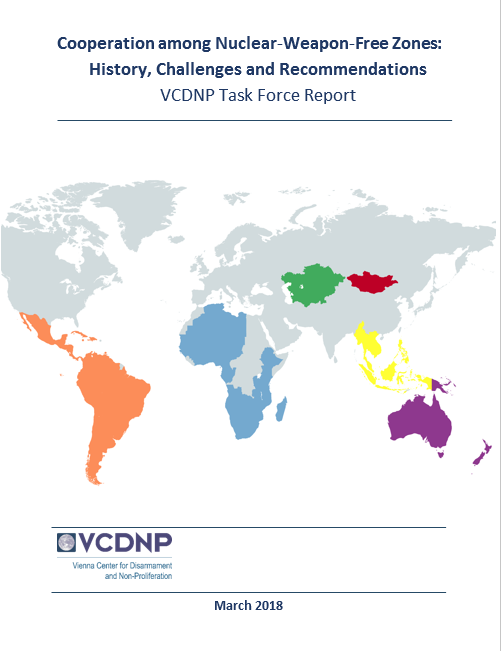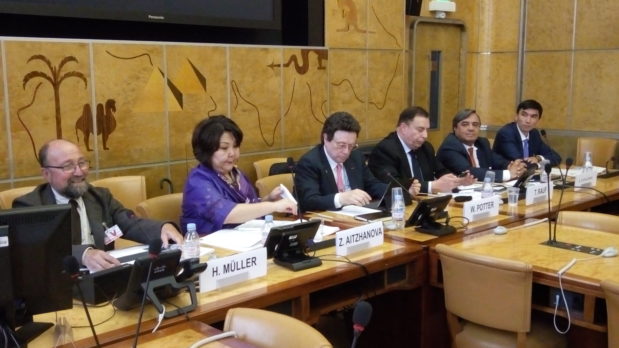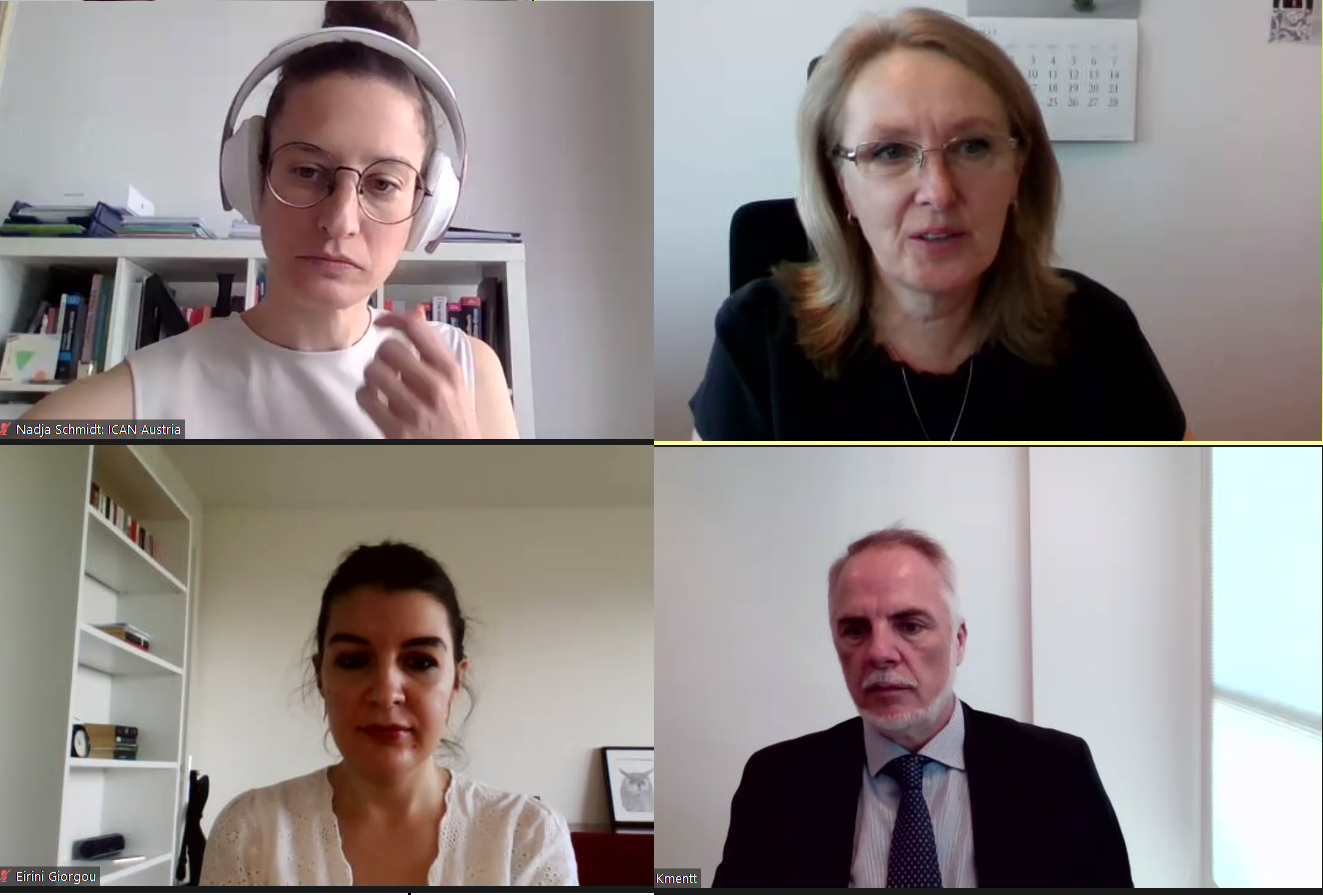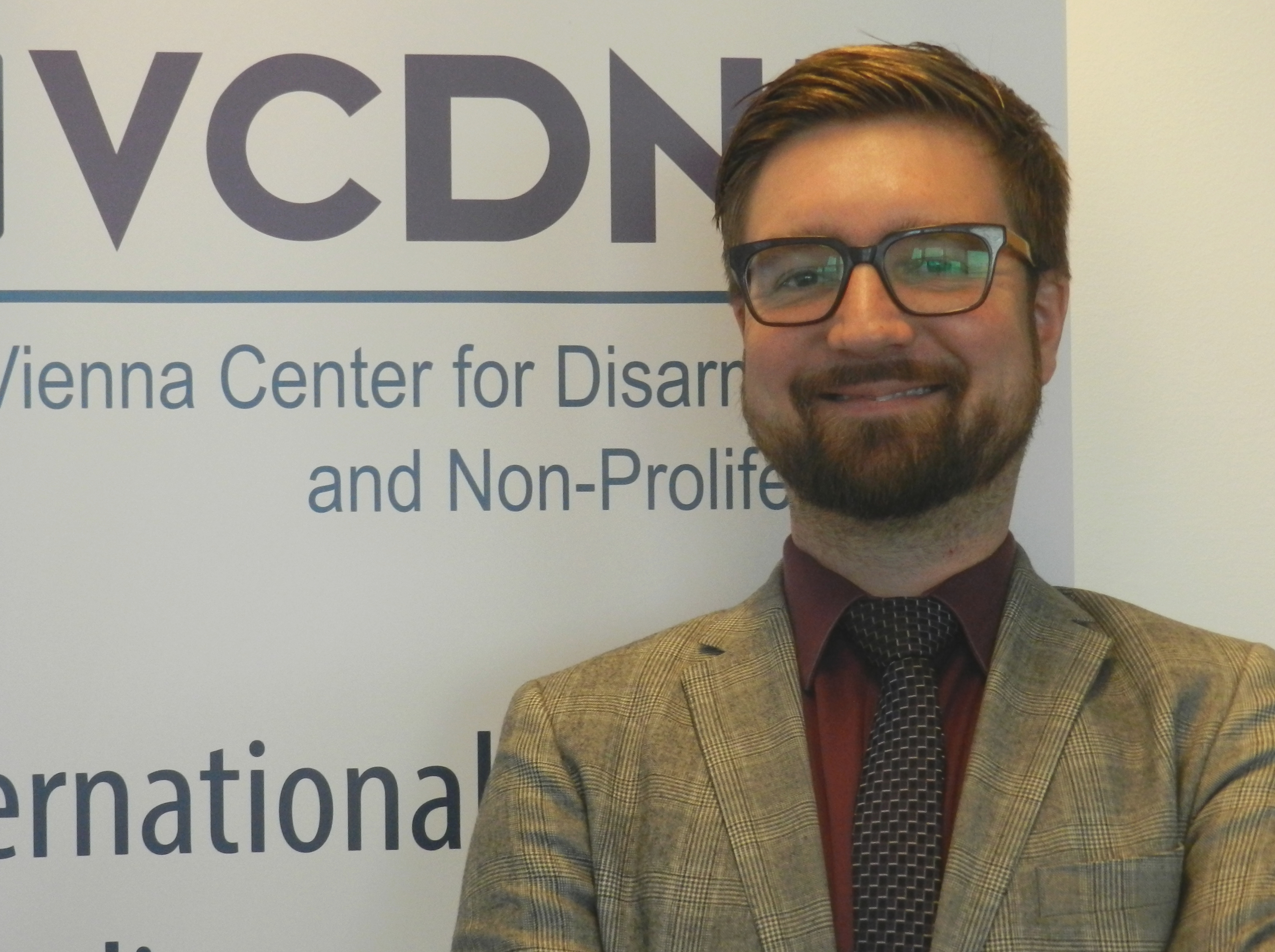
On 3 May 2018, the VCDNP and the Permanent Mission of Kazakhstan (PMK) in Vienna organised a panel discussion on the cooperation among nuclear-weapon-free zones (NWFZs). The event was hosted by the PMK in Geneva and took place on the margins of the second session of the Preparatory Committee for the 2020 Review Conference of the Parties to the Treaty on the Non-Proliferation of Nuclear Weapons (2018 NPT PrepCom) which was held at the United Nations Office in Geneva. The panel discussion was moderated by Dr. William Potter (the James Martin Center for Nonproliferation Studies at the Middlebury Institute for International Studies at Monterey) and included the following speakers: Ambassador Zhanar Aitzhanova (Kazakhstan); Dr. Harald Müller (retired Director of the Peace Research Institute Frankfurt – PRIF); Tariq Rauf (NPT expert); Alimzhan Akhmetov (Center for International Security and Policy, Astana); and Anuar Tanalinov (PMK, Vienna).

Ambassador Aitzhanova started her remarks by underlining the priority placed on non-proliferation and disarmament in Kazakhstan’s national, regional and international agenda. She reminded the audience that the decision by President Nursultan Nazarbayev to close the Semipalatinsk nuclear test site on 29 August 1991 had led Kazakhstan to be the first State in history to ban nuclear tests and eventually paved the way to the conclusion of the Comprehensive Nuclear-Test-Ban Treaty. She also stressed that the UN General Assembly had proclaimed that day as the International Day against Nuclear Tests, and highlighted that the city of Semipalatinsk had been chosen as the location best suited for the signing ceremony of the Treaty on the NWFZ in Central Asia.
Ambassador Aitzhanova also reiterated Kazakhstan’s commitment to enhancing cooperation among the zones and mentioned that in August 2017 President Nazarbayev had expressed readiness to convene a meeting of NWFZ States in Kazakhstan.
Dr. Müller then provided an in-depth analysis of the findings and recommendations outlined in the VCDNP Task Force report entitled “Cooperation among Nuclear Weapon Free Zones: History, Challenges and Recommendations”. He emphasized that, historically, cooperation among the nuclear-weapon-free zones had not been comprehensive, systematic nor sustainable. He also touched on the plethora of challenges to this cooperation, such as the low level of institutionalization both within and among NWFZs, difficulties in finding and expressing common positions among each zone, and a lack of continuity or momentum at conferences of NWFZ members.
Dr. Müller’s presentation continued with a summary of the Task Force’s recommendations as to how cooperation could be enhanced among NWFZs. The first set of recommendations concerned communication and institutionalization of contacts. In particular, it was suggested that each zone establish a secretarial mechanism to aid coordination within the zone and that a global NWFZ website be created to enhance communication among the zones. The second set of recommendations related to research and analysis on matters of common interest and importance. The report suggested, for example, that NWFZ States exchange experiences on issues of shared interest and study the possibility of establishing new NWFZs. Disarmament and non-proliferation education comprised the third set of recommendations. The fourth set of recommendations focussed on NWFZs cooperation with international organizations and within multilateral fora. Dr. Müller specified that the zones could cooperate on an annual NWFZ draft resolution in the UNGA, articulate common positions on nuclear disarmament and other relevant issues in the framework of multilateral organizations and negotiations, and develop the capability to respond jointly in the event of a nuclear crisis.
Dr. Müller concluded that NWFZs had the potential to become a major force in the move towards a world without nuclear weapons. This potential can only be ensured if the zones participate fully, noting that a robust cooperation initiative by NWFZs would be timely and desirable.
The next speaker, Tariq Rauf, reiterated the need to strengthen cooperation among the NWFZs and between the NWFZs and international organizations such as the International Atomic Energy Agency (IAEA), the Comprehensive Nuclear-Test-Ban Treaty Organization (CTBTO) and the UN Office for Disarmament Affairs (UNODA). In his view, the conferences of the zones in 2005, 2010 and 2015 were just meetings and not a hallmark of cooperation, which he described as being “weak to non-existent”. Mr. Rauf recommended that the advisory role of the IAEA within the zones be strengthened and encouraged enhanced institutional contacts between zonal organizations and the IAEA in the following areas: nuclear safeguards, safety and security; nuclear energy; nuclear applications and sciences; nuclear law; and capacity-building. Although the role of the CTBTO under the NWFZ treaties is not clear, the zones could benefit from institutional contacts within the CTBTO especially regarding its international monitoring system, data centre, and the CTBTO Youth Group. According to Mr. Rauf, areas of cooperation between the NWFZs and the UNODA could include: the NPT; the Treaty on the Prohibition of Nuclear Weapons (Ban Treaty); assistance to other regions seeking to establish NWFZs and bridge-building between the zones and the nuclear-weapon States.
Alimzhan Akhmetov concluded that NWFZ cooperation should be enhanced on two levels: within each zone and among the zones. He also argued that the Ban Treaty logically stemmed from Article 7 of the NPT, which recognized the right of States “to conclude regional treaties in order to assure the total absence of nuclear weapons in their respective territories”.
During the Q&A session one participant commented that during the first week of consultations of the 2018 NPT PrepCom session, the idea to convene a fourth conference of the zones received a positive response from representatives of the zones. A representative of Mongolia then stated that Mongolia was ready to assume the coordination of the conference and Ambassador Aitzhanova welcomed NWFZ States to hold a preparatory meeting in Astana. As to the possible time and venue of the fourth conference, Mr. Rauf stated that there was no reason for the conference to take place in New York simultaneously with the NPT Review Conference, as was the case with the last two conferences. The topic of the creation of a zone free of weapons of mass destruction in the Middle East was also discussed. In particular, one participant suggested that, given that members of the NWFZs represent the majority of NPT States Parties, States should raise the issue of creating a NWFZ in the Middle East in Main Committee II talks at the 2020 NPT Review Conference.

